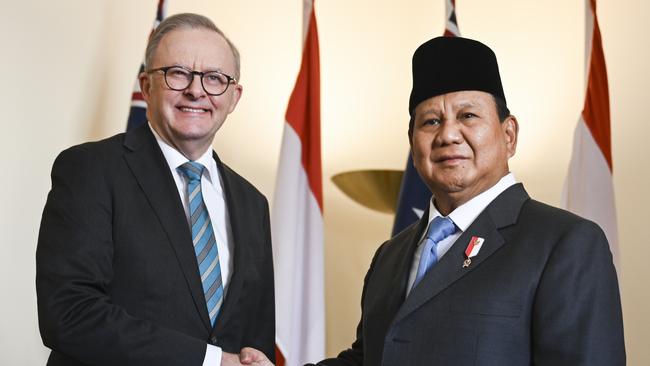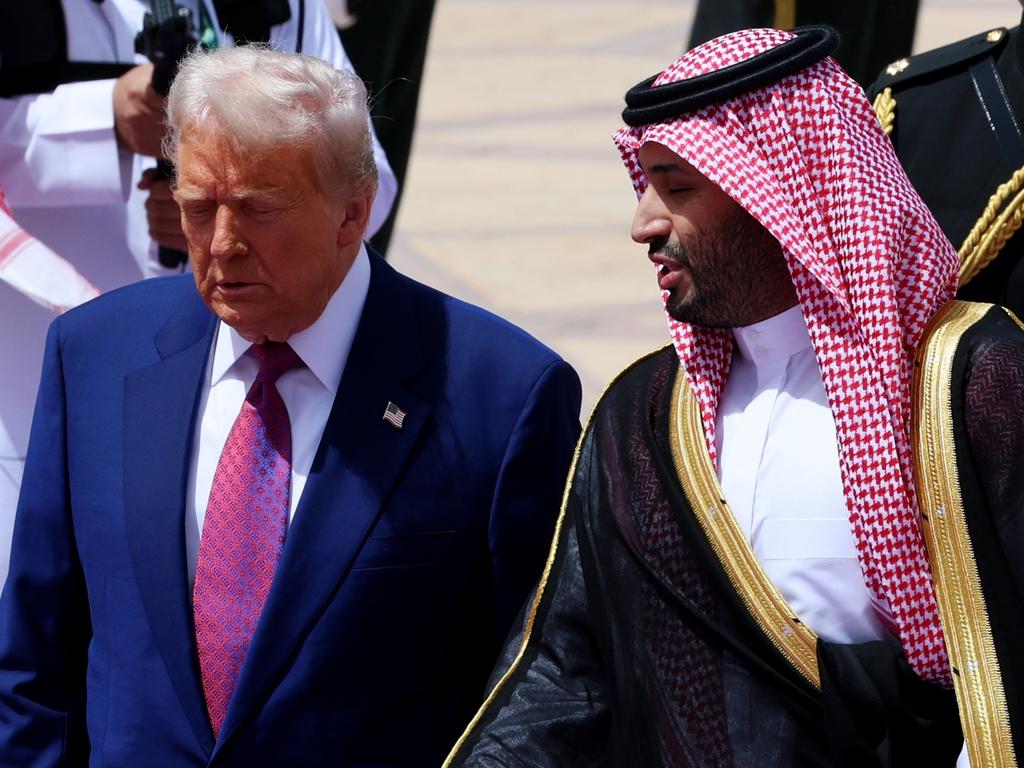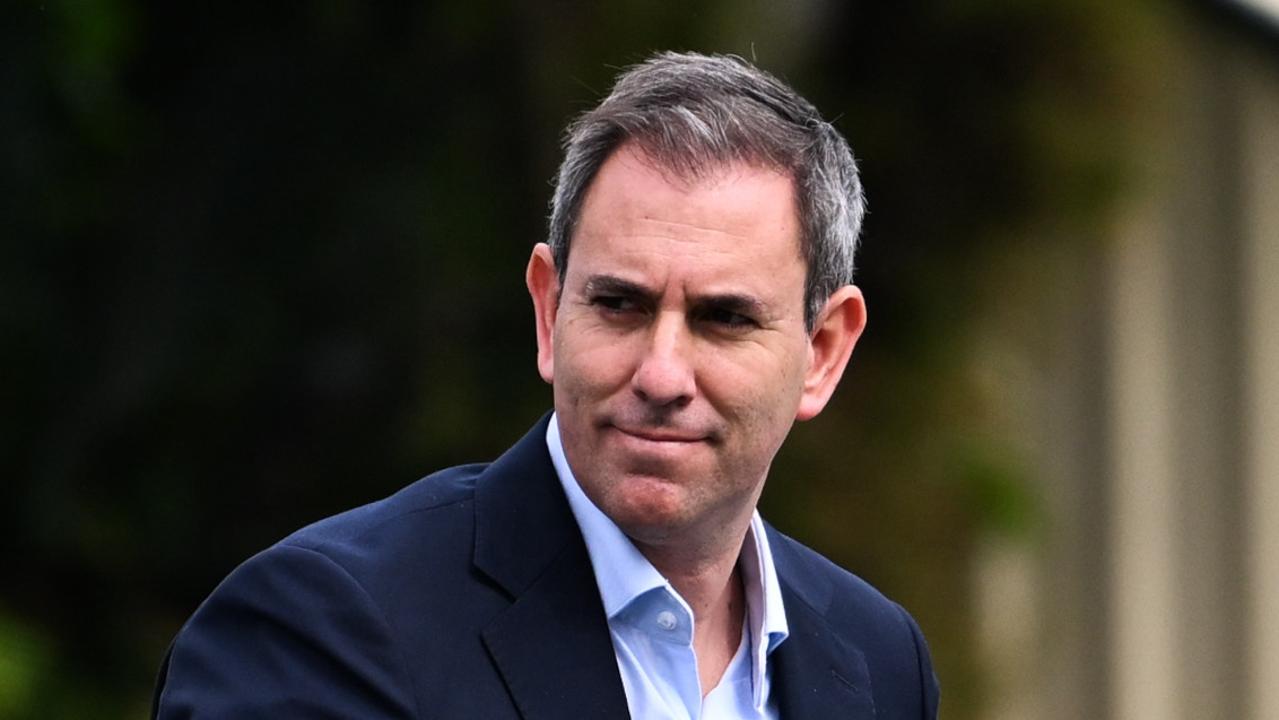Defence and business on agenda for Anthony Albanese’s Jakarta trip
Anthony Albanese will look to ramp up joint military exercises with Indonesia and turbocharge the nations’ trade and investment ties when he meets with President Prabowo Subianto on Thursday.

Anthony Albanese will look to ramp up joint military exercises with Indonesia and turbocharge the nations’ trade and investment ties when he sits down with the country’s President, Prabowo Subianto, in Jakarta on Thursday.
Amid heightened concerns over Indonesia’s expanding ties with Russia and China, the Prime Minister is said to be determined to strengthen his already close personal relationship with Mr Prabowo, who will be in office for the entirety of Mr Albanese’s second term.
Mr Albanese will be accompanied on his first overseas trip since his election win by two of his most trusted lieutenants – Foreign Minister Penny Wong and Home Affairs Minister Tony Burke.
Bedding down the Australia-Indonesia defence co-operation agreement, signed last August, will be a top priority for the visit, along with strengthening business ties with the emerging economic giant.
Donald Trump’s tariff blitz will also be on the agenda as both nations look to negotiate carve-outs from the punishing trade measures that have dealt a blow to the US’s standing in Southeast Asia.
Mr Albanese, who will then fly from Jakarta to Rome for the Pope’s inaugural mass on Sunday, underscored the importance of the Australia-Indonesia relationship when Mr Prabowo phoned him last week to congratulate him on his election win.
“I have a request for you, and I want you to say yes,” Mr Albanese asked his counterpart.
“I want Indonesia to be my first visit. Not Washington, not Beijing, not anywhere else.”
The trip comes after it was revealed during the election campaign that Moscow issued a formal request to operate long-range military aircraft from an Indonesian air base just 1300km from Darwin.
Lowy Institute international security program director Sam Roggeveen said Jakarta’s “flirtation” with Russia underscored its longstanding commitment to its non-aligned status. But he said Australia’s goal should be an ANZUS-style agreement with Indonesia committing both countries to consult on security threats.
“You’re up against Indonesia’s non-aligned status and the Indonesians would never jeopardise that. But you can do an awful lot without calling it a treaty,” Mr Roggeveen said.
At the same time, he said Australia needed to be wary of Indonesia’s concerns over the AUKUS submarine pact and the US’s growing strategic presence in Australia, which threatened to turn Southeast Asia into “a theatre for great power competition”.
He said Australia should also encourage Jakarta to step up as the natural leader of the ASEAN bloc as a counterbalance to China’s strategic heft. “Given China’s ambitions in Southeast Asia, anything Australia can do to nudge Indonesia towards that kind of leadership position is welcome,” Mr Roggeveen said.
The Albanese’s government’s 2022 Southeast Asia Economic Strategy, developed by former Macquarie Bank boss Nicholas Moore, urged Australian investors to take a fresh look at Indonesia, which is on track to become the world’s fifth-largest economy by 2040.
University of Western Sydney chancellor Jennifer Westacott, who was appointed by the government as a “business champion” for the Indonesia relationship, said the investment opportunities in the country were “staggering”.
“This is an economy that’s going to be one of the biggest in the world. Why would we not want to be a part of that?” she said, adding resources companies, food producers, education providers and health companies were among those that stood to cash in.
“One of the things I’m trying to correct is this perception that it’s too hard to do business in these jurisdictions,” Professor Westacott said.
“I mean, my university – from the day we announced we wanted to set up a campus in Surabaya to the day we opened the campus was two years. I wouldn’t be able to do that in Australia. I think it’s about persistence. It’s about finding the right pathways.”
Mr Prabowo’s pledge to combat stunting in children with free protein-rich lunches – about 83 million meals a day – has already piqued the interest of Australia’s dairy farmers.
Dairy Australia international markets manager Bronwyn Duke said: “Indonesians consume about 15kg of dairy per year per person. In Australia, it’s closer to about 300. So if they can bring that up at all, it’s good news for Indonesians.”






To join the conversation, please log in. Don't have an account? Register
Join the conversation, you are commenting as Logout